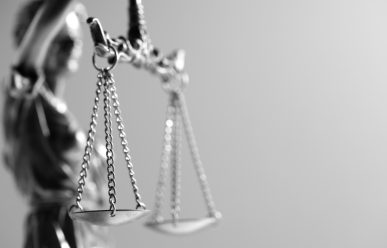The Supreme Court’s recent ruling in Vance v. Ball State University changed the landscape for employees claiming discrimination under Title VII, including sexual harassment.[1] In Vance, the Court limited the definition of a “supervisor” to being a person who can “take tangible employment actions” against the employee, meaning a “significant change in employment status, such as hiring, firing, failing to promote, reassignment with significantly different responsibilities, or a decision causing a significant change in benefits.”[2]
So, it appeared that after Vance the only way an employer could be held vicariously liable for discrimination was if the harasser fell into this definition of a “supervisor.”
In a recent decision, however, the United States District Court for the District of Maryland noted that there could be instances where the employer can be held vicariously liable for sexual harassment conducted by non-supervisors.[3] In Barcus v. Sears, the harasser did not have any of the powers necessary to qualify as an “employer” under Vance’s definition.[4] The Court noted that it would proceed with its analysis in this case under the assumption that the harasser was the plaintiff’s supervisor.[5] The Court reasoned that as “[t]he [Supreme Court’s] decisions in Ellerth and Faragher were premised on principles of agency, and the Ellerth Court noted that the law of agency sometimes extends liability to an employer for the conduct of an agent who acts with apparent authority even when the agent lacks actual authority.”[6]
The Barcus court continued by explaining what would constitute “apparent authority,” noting that “unusual cases may arise in which the victim was under the false impression that the perpetrator was a supervisor,” and in those instances “the employer may be vicariously liable for the sexual harassment if the victim reasonably but mistakenly believed that the perpetrator was a supervisor.”[7] In this context, the Barcus court held that as a reasonable juror could find that the harasser had “held himself out” as the employee’s supervisor.[8] The facts that contributed to this decision were: that the plaintiff reasonably, although mistakenly, thought the harasser was her supervisor; that the harasser “ran the store” from time to time, and the plaintiff believed he had the power to hire and fire her during those periods; and the harasser informed the plaintiff that he would help secure her transfer to another store.
This decision, if adopted by other courts, has the potential of being a game-changer for those cases when an employee alleging harassment reasonably but mistakenly believes that the alleged harasser possessed the power as defined by Vance. Under those circumstances, the employer may still be held vicariously liable for non-supervisory personnel.
_______________
Meredith Schramm-Strosser is an Associate in Joseph, Greenwald & Laake’s civil litigation department, specializing in the areas of Employment & Labor Law and the False Claims Act (“Qui Tam”). Ms. Schramm-Strosser is a 2007 magna cum laude graduate of Franklin & Marshall College, and 2012 cum laude graduate of George Mason University School of Law, where she served as a Research Editor on the 2011-2012 editorial board of The George Mason Law Review. Ms. Schramm-Strosser’s other publications include The “Not So” Fair Credit Reporting Act: Federal Preemption, Injunctive Relief, and the Need to Return Remedies for Common Law Defamation to the States. 14 Duq. Bus. L. J. 165 (2012).



